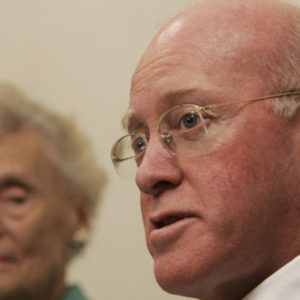New Hampshire Reps. Annie Kuster and Chris Pappas are co-sponsors of a House-passed bill regulating elections that would put Secretary of State Bill Gardner out of business. So what did Secretary Gardner say when Kuster and Pappas came to him to discuss its impact on local control of elections and his office’s oversight?
“They never spoke to me,” Gardner tells NHJournal. “They still haven’t.”
The bill in question, H.R. 1 –also known as the “For the People Act” –strips the Secretary (along with Granite State voters and state legislators) of their right to decide how to conduct elections at the local level: Should there be early voting? Automatic voter registration? Should felons be able to vote? Should ballots cast by people who don’t live in the district still count?
Under this new bill, all of those decisions would be made, not by New Hampshire’s top election official, but by federal law. And New Hampshire’s members of Congress love it.
Rep. Pappas has repeatedly tweeted about it, given interviews supporting it and even wrote an op-ed celebrating it. But he never discussed it with Gardner. Why? (Rep. Pappas declined to comment on this story.)
Perhaps he knew that Gardner, an advocate of local control of elections, wouldn’t be a big fan.
“We don’t have early voting, and we don’t have automatic voter registration,” Secretary Gardner notes, both of which would be mandated by H.R. 1. “And in the last presidential election, we had the second-highest turnout based on the voter-eligible population. On the voting-age population, we were third. They are trying to fix problems we don’t have.”
“This bill would potentially have the federal government take over our elections,” Gardner said.
And based on analysis from election lawyers, Gardner’s on the right track.
“H.R.1 radically transforms the constitutional relationship between states and the federal government. It strips power from states to run their own elections,” says attorney J. Christian Adams of the Public Interest Legal Foundation. “This proposal would mark the largest transfer of power over elections from the states to the federal government in the history of the nation.”
Hans von Spakovsky, a former member of the Federal Election Commission and now a fellow at the Heritage Foundation, agrees. “It represents a federal takeover of the election process,” he tells NHJournal.
H.R. 1 is a massive, 250-page bill regulating America’s elections, from how to register voters to overseeing campaign funding. And Rep. Pappas is one of its biggest proponents.
“The legislation includes an array of pro-democracy, anti-corruption reforms that are a breath of fresh air,” Pappas wrote in a recent op-ed. “H.R. 1 tightens requirements for lobbyists, unmasks anonymous dark money donors to campaigns, and incentivizes candidates who raise money from small, grassroots donors.”
By “incentivizing candidates,” Pappas means the new bill would pay politicians with taxpayer dollars. Every eligible voter would get a $25 voucher that they could give to a politician, paid for with tax dollars. Taxpayers would also match small-dollar donations (up to $200) at a six-to-one ratio. If your neighbor gives $50 to Rep. Pappas, for example, you and your fellow taxpayers would kick in another $300. If your ex-husband gives $200 to Donald Trump, taxpayers would add $1,200 to his campaign coffers.
But most of the concern over H.R. 1 has been over its impacts on local control and constitutional rights of freedom of speech and freedom of assembly. Those latter concerns are why even the Democrat-friendly ACLU opposes this bill, saying it would “unconstitutionally burden the speech and associational rights of many public interest organizations and American citizens and … chill speech essential to our public discourse.”
The bill also mandates early voting (which Secretary Gardner argues actually drives participation rates down), same-day registration, “no-fault” absentee ballots (another form of early voting) and giving felons the right to vote — with or without local approval.
Some Granite Staters support these ideas. Some oppose them. But how many know that Rep. Pappas and the House Democratic majority just voted to keep them from having a say either way?
How many Granite State voters know their two members of Congress just voted to take away their right to run New Hampshire elections based on New Hampshire values?
How many know Kuster and Pappas just voted to give millions of tax dollars to politicians to run their campaigns?
Do they know these Democrats just voted to make Election Day a paid holiday for federal government workers? (“Just what America needs, a bunch of government workers being paid to go out and work for, I assume…our colleagues on the other side, on their campaigns,” GOP Senate Majority Leader Mitch McConnell quipped.)
And how many know that drawing voting districts here in New Hampshire will be done, not by locally-elected officials, but by a federally-approved committee?
According to Adams, “we all know that no part of H.R.1 is going to become the law during this Congress. This is merely an exercise in educating the public about a variety of election process changes that one political party would like to implement because they believe they will benefit from them.”
Perhaps. But thanks to the refusal of Reps. Kuster and Pappas to answer questions about their support for this bill, there’s a great deal that Granite Staters don’t know about why their members of Congress want to strip them of local control of their elections.




